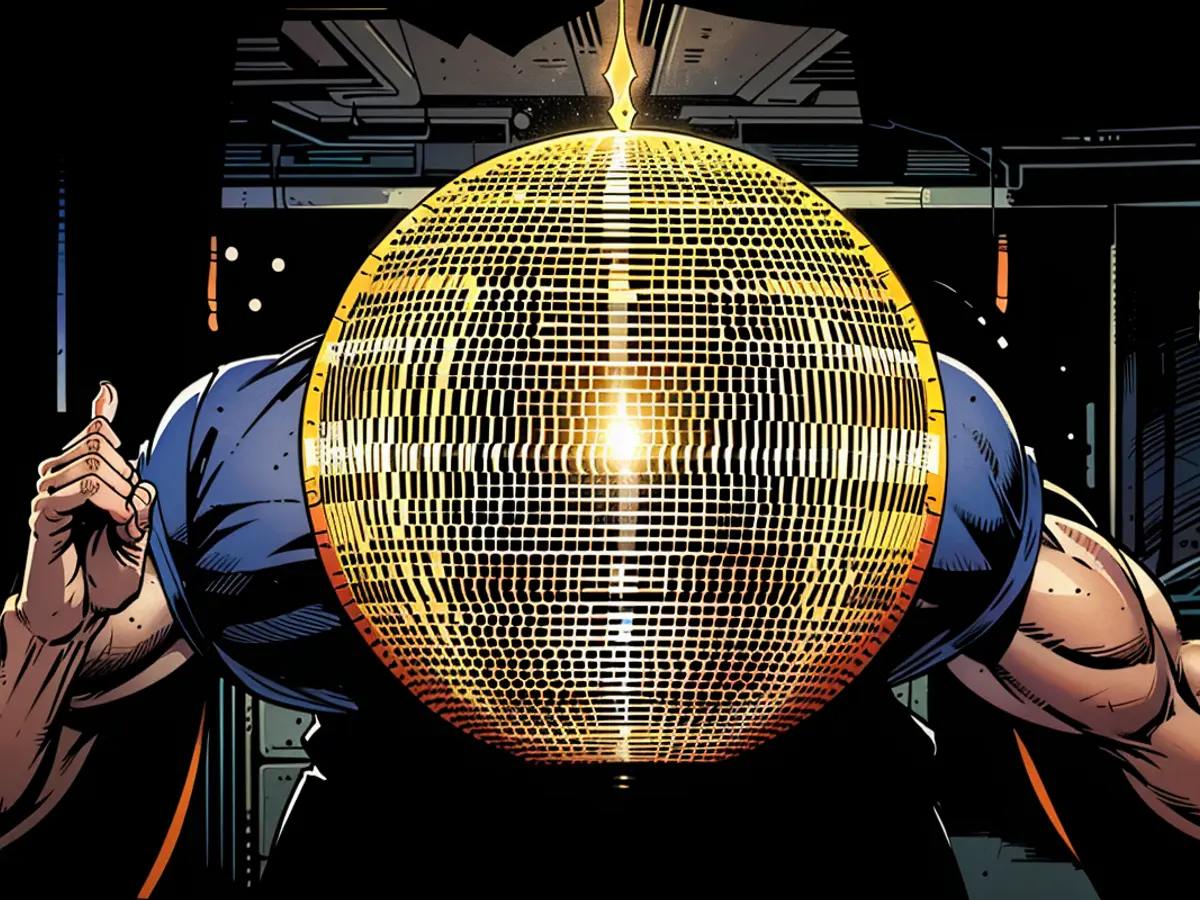- The summer when disco conquers the world
Glitter Dress, Mirror Ball, and Laid-back Pants with Flare - Hardly any music genre has left a bigger mark on the image of the 1970s than Disco. And thus kept the memory of a decade alive. But behind the sound is more than catchy dance music that is still played up and down at oldie parties today. For disillusioned by the failure of hippie idealism, disco emerged at the beginning of the 1970s also from the desire to finally free oneself from sexual norms and racist societal images. Disco was more than just music at the time.
What Disco is Really About
Its origins can be found in the experiments in New York underground clubs, where predominantly homosexual blacks and Latinos meet. "As they were denied the opportunity to dance undisturbed with other men, gay people took to disco like a drug," writes cultural scientist Alice Echols.
Disc jockeys initially play Motown, soul, and funk records, from which the first blossoms of the new style emerge. "The DJs mix danceable records together and adapt them so that the beat is continuous without interruption," says music professor David-Emil Wickström of the Pop Academy Baden-Württemberg. "It's about being able to keep dancing." DJs and clubs play a central role. From the dance floor via radio to the charts: that's how the success recipe worked at the time.
The sound itself can be easily described: a medium tempo, electric instruments and synthesizers, and the so-called "Four on the Floor" beat, which lies on every quarter note in the four-four time. The motto is: catchiness!
Black musicians conquer the charts
Initially, songs from the soul scene make a name for themselves. In early 1974, "The Love I Lost" by Harold Melvin & the Blue Notes with its characteristic cymbal sound stays in the British charts for eight weeks. At the same time, instrumental pieces like "TSOP" ("The Sound of Philadelphia") by MFSB and "Love's Theme" by Love Unlimited Orchestra achieve great success.
"This is very lush soul music," explains Wickström in conversation with the German Press Agency. "The musicians take the Motown sound as a template and make it even more opulent, even more pompous, with even more strings and even more cheese." This is indeed just a further development of Motown, but nonetheless, these songs are "the early, disco-like hits."
Soon tracks follow that are considered the first milestones and mark the breakthrough for disco. For they climb the charts of the most important music markets. They are sung by black musicians. "Rock The Boat" by The Hues Corporation, "Rock Your Baby" by George McCrae, "Kung Fu Fighting" by Carl Douglas, or Gloria Gaynor's cover of the Jackson Five song "Never Can Say Goodbye": they all see the light of day from the summer of 1974 onwards.
At this time, alongside vinyl records, drum computers and synthesizers are becoming increasingly important. "Never Can Say Goodbye" was one of the first recordings to be mixed specifically for the dance floor: less reverb, so the sound is perfect in the club, says Wickström.
Worldwide Disco Fever Only of Short Duration
With the new technology, the wave then also spreads to Europe - including Munich. There, the South Tyrolean Giorgio Moroder has set up his "Musicland" studio and initially produces German interpreters like Mary Roos and Michael Holm. In 1975, he then achieves international success with a 17-minute moaning Donna Summer: her "Love To Love You Baby" becomes a worldwide hit. A pure synth track with vocals. Nothing else. Moroder's "Disco Sound of Munich" is highly sought after.
The ultimate mainstream peak comes in 1977 with the cinematic blockbuster "Saturday Night Fever". With "Stayin' Alive", "Night Fever", "Jive Talkin'" or "You Should Be Dancing", the Bee Gees provide the perfect soundtrack. "The film took the music from a black, Latino-queer underground and placed it firmly as white, heteronormative, and Italo-American", says Wickström.
Music starts to dominate Germany's increasingly sophisticated and expensive discotheques. In East Germany, the role of the "record entertainer" becomes increasingly important.
No House and Techno without Disco
Quickly, white artists like Blondie ("Heart Of Glass") or Rod Stewart ("Da Ya Think I'm Sexy?") adopt the style, as do musicians like the Village People ("Y.M.C.A.") at the intersection of gay subculture and mainstream. However, the hype doesn't last long: the market becomes saturated quickly. By 1980, disco music is already a thing of the past. Two of the last number-one hits are "Good Times" by Chic and Donna Summer's "Bad Girls" in the summer of 1979.
The queer-black underground soon turns to new dance styles: Chicago House and Detroit Techno. But without the "Four on the Floor" beat from the disco era, they wouldn't be possible. What is now known as EDM, or electronic dance music, has its roots in the 1970s. The phenomenon of DJs as cultural icons also originates from this time.
Disco never truly disappears, instead resurfacing in waves. Elements are often incorporated, such as on Madonna's "Confessions On The Dancefloor" (2005) or Kylie Minogue's "Disco" (2020). Daft Punk's polished album "Random Access Memories" (2013), with its megahit "Get Lucky", is a clear homage to the 1970s. The track "Giorgio by Moroder" leaves no doubt about the influence.
The wave of disco music spread to Europe in the mid-1970s, with German interpreters like Mary Roos and Michael Holm gaining popularity. This was due in part to Giorgio Moroder's "Musicland" studio in Munich, which produced the international hit "Love To Love You Baby" with Donna Summer. (Mid-1970s disco expansion in Europe)
Despite its decline in popularity by the early 1980s, the influence of disco can still be heard in modern electronic dance music (EDM), such as in Daft Punk's 2013 album "Random Access Memories." (Disco's enduring impact on EDM)








